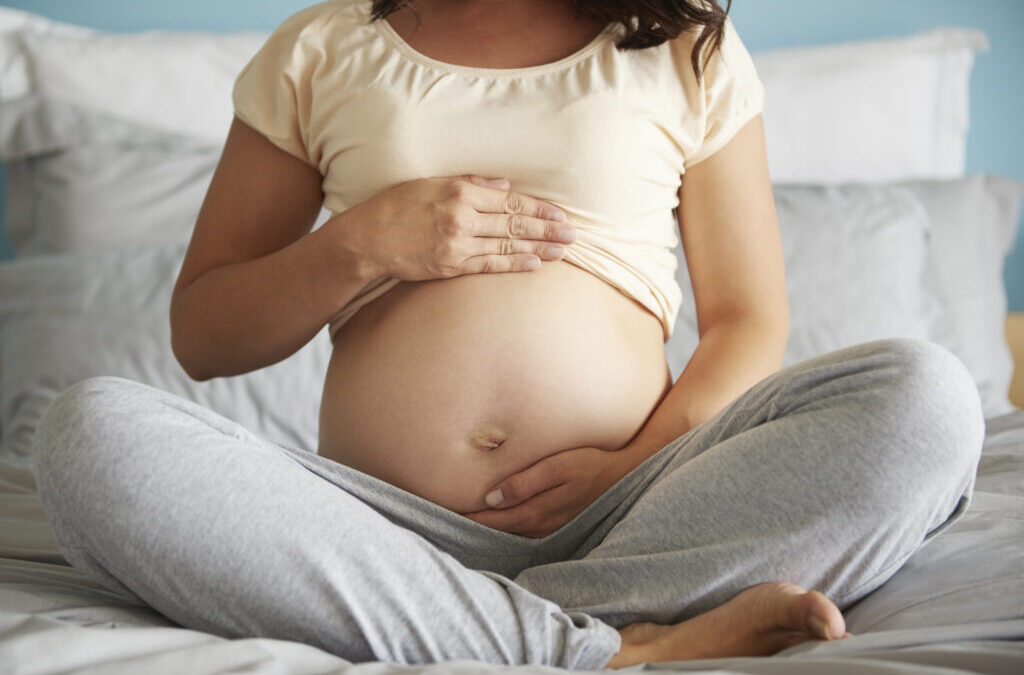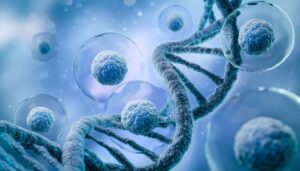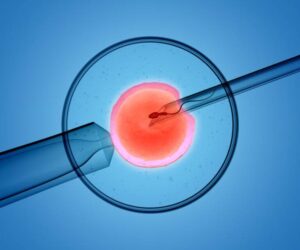Failed IVFs can be emotionally taxing for hopeful parents, causing frustration, disappointment, and loss. With each unsuccessful attempt, the financial strain and dashed hopes can take a toll on one’s mental well-being.

“It is important to focus on holistic health to get naturally pregnant at 43 after failed IVF,” says one of the renowned IVF doctors in India Dr. Nisarg Patel. “One must prioritize a balanced diet, regular exercise, and stress reduction.”
Dr. Nisarg Patel co-founded the state-of-the-art Nisha IVF Centre, often deemed the best IVF Centre in Ahmedabad.
What are the chances of getting naturally pregnant at 43 after failed IVF?
The chances of getting naturally pregnant at 43 after failed IVF (In Vitro Fertilization) can vary depending on various factors, including:
- the quality of the embryos
- the reason for the initial IVF failure
- the number of previous failed cycles
- underlying fertility issues
- the choice of the fertility clinic
- the expertise of the fertility specialist
On average, the chances of achieving a successful pregnancy after a failed IVF attempt are not significantly affected. There is a strange link between failed IVF and natural pregnancy. Studies have shown that many couples who experience failed IVF cycles may still have a good chance of achieving pregnancy in subsequent attempts.
“Sometimes failed IVF treatments can paradoxically enhance a couple’s chances of natural conception,” says Dr. Nisarg Patel. “By identifying and addressing fertility issues, IVF may pave the way for unassisted pregnancy in the future.”
If you have experienced multiple failed IVF cycles, please consult a qualified fertility specialist like Dr. Nisarg Patel, one of the best IVF doctor in Ahmedabad to review the previous treatments. He will be able to identify potential ivf treatment failure reasons and advise you on alternative approaches.
Biggest Reasons IVF Fails
Understanding the potential hurdles is crucial in the journey of assisted reproduction. Here are some of the most significant reasons IVF may face challenges and not result in successful conception.
- Advanced maternal age: Decreased egg quality and quantity affect IVF success rates.
- Poor embryo quality: Lower-quality embryos have reduced chances of successful implantation.
- Ovarian response issues: Inadequate or excessive response to fertility medications can impact the number of retrieved eggs.
- Implantation failure: Embryos may fail to implant in the uterus, leading to unsuccessful IVF cycles.
- Uterine abnormalities: Structural issues in the uterus may hinder embryo implantation and growth.
- Sperm-related issues: Poor sperm quality or low sperm count can affect fertilization and embryo development.
- Hormonal imbalances: Hormonal imbalance may impair egg maturation and embryo implantation.
- Endometrial receptivity issues: The uterus may not be receptive to embryo implantation during the IVF cycle.
- Genetic abnormalities: Chromosomal abnormalities in embryos can lead to failed implantation or early miscarriage.
- Lifestyle and health factors: Smoking, obesity, and certain medical conditions can influence IVF outcomes.
- Underlying medical conditions: Conditions like polycystic ovary syndrome (PCOS) or endometriosis can impact IVF success.
The success rates of IVF cycles can vary from person to person. That said, since our fertility declines as we age, the chances of getting naturally pregnant at 43 after failed IVF will be lower than if you were below 30.
For people planning on delayed parenthood, Cryopreservation may be a great option to preserve their fertility.
It is essential to stay positive, seek emotional support, and explore all available options for achieving a successful pregnancy or parenthood.
Options After Failed IVF at 43
ICSI (Intracytoplasmic sperm injection):
After a failed IVF, couples wanting to become parents have several options to consider:
Repeat IVF Cycle:
Some couples may opt for another IVF attempt, addressing any issues identified during the previous cycle.
Donor Eggs or Sperm:
Using donor eggs or sperm can increase the chances of a successful IVF for couples with fertility challenges.
Embryo Adoption:
Couples may adopt embryos from donors who have completed IVF treatment.
Surrogacy:
For individuals or couples unable to carry a pregnancy, surrogacy offers an option to have a child through a gestational carrier.
Natural Conception:
Some couples may continue trying to conceive naturally while facing fertility struggles.
Adoption:
Adoption provides an opportunity to build a family and offer a loving home to a child.
Exploring Other Fertility Treatments:
Couples may consider alternative fertility treatments like IUI or advanced IVF techniques like ICSI, Blastocyst transfer or fertility medications.
Each couple’s journey is unique, and the decision of getting pregnant naturally after failed ivf should be based on personal circumstances, medical advice, and emotional well-being. Please consult an IVF specialist like Dr. Nisarg Patel to understand the best solution for you.
Is getting pregnant naturally better than IVF?

The choice between the two paths is deeply personal, and seeking guidance from a fertility expert can help determine the best approach for each couple’s journey to parenthood.
Conclusion

Remember, remaining positive and informed about all available options is essential.
Do not hesitate to consult the highly-skilled fertility specialist Dr. Nisarg Patel to identify potential underlying issues and explore natural conception options.
With over 10 years of expertise in helping several hopeful people achieve their dream of parenthood, Dr. Patel is frequently called the best IVF doctor in Ahmedabad.
Frequently Asked Questions
Q.1 Is natural pregnancy safer than IVF?
A: Generally, natural pregnancy is considered safer as it involves fewer medical interventions; however, IVF is safe when conducted by experienced professionals, offering hope to couples with fertility challenges.
Q.2 When do most IVF cycles fail?
A: IVF cycles can fail at different stages, but most failures occur during embryo implantation when the embryo fails to attach to the uterus successfully.
Q.3 Does failed IVF delay your period?
A: In most cases, failed IVF does not significantly impact the menstrual cycle, and the period will occur as expected. However, fertility medications used during IVF may cause slight irregularities in some cases.
Q.4 Why do people fall pregnant naturally after IVF?
A: Some couples may experience improved fertility factors post-IVF due to improved fertility awareness, reduced stress, or addressing underlying health issues during IVF treatment.
Q.5 Can a woman have a healthy baby at 43?
A: Yes, a woman can have a healthy baby at 43. However, fertility declines with age, increasing the chances of complications and requiring close medical monitoring during pregnancy.




